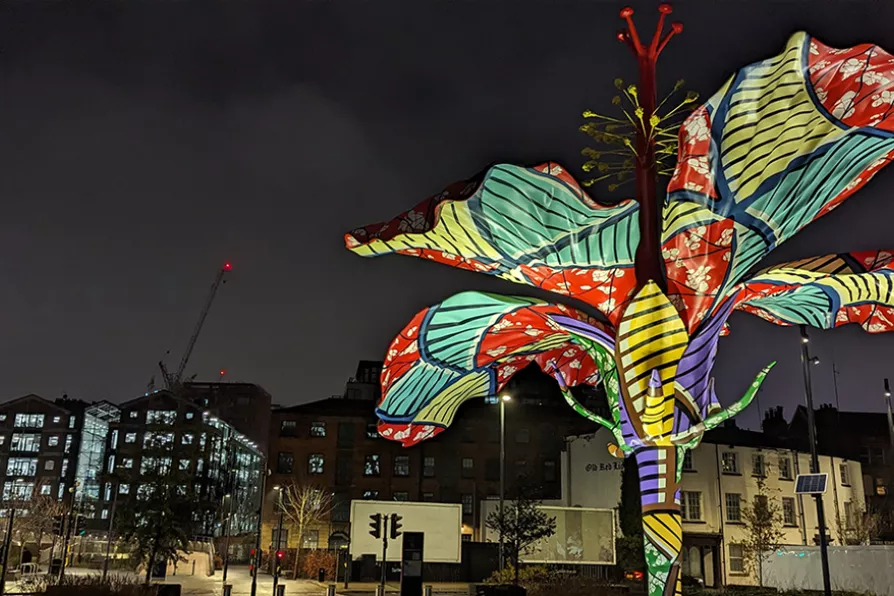ALAN McGUIRE welcomes the complete poems of Seamus Heaney for the unmistakeable memory of colonialism that they carry

 Yinka Shinibare's sculpture to commemorate David Oluwale, Hibiscus Rising
[Lajmmoore/CC]
Yinka Shinibare's sculpture to commemorate David Oluwale, Hibiscus Rising
[Lajmmoore/CC]
ON 4 May 1969, the body of David Oluwale, a British Nigerian, was recovered from the River Aire in Leeds. A tailor by training, he had come to Leeds in 1949 because of its then thriving textile industry. His death was not treated as suspicious by the police or the coroner at the following inquest, and as Oluwale had been recently homeless and living on the street due to mental health problems, he was given a pauper’s burial.
But in 1970 a police cadet whistle-blower reported police gossip that Oluwale had been systematically persecuted and assaulted by two police officers, Kitching and Ellerker. At the subsequent enquiry and the manslaughter/assault trial that followed it, witnesses said that these two officers had regularly beaten Oluwale; made him bow on his hands and knees — when they would kick his arms away; on one occasion urinated on him; and several times driven him to the city outskirts and dumped him, trying to drive him out of the city.
In the early hours of April 17 1969, the two officers once more assaulted Oluwale as he slept in a shop doorway. He was last seen running away from them towards the river. It’s not known whether he fell into the river or was pushed in. Though the officers were convicted of assault, they were found innocent of GBH and the manslaughter charge was dropped. Oluwale was described by the judge as “a dirty, filthy, violent vagrant,” contrary to the opinion of witnesses at the earlier enquiry, who’d said he was unassuming and cheerful.
by Christopher Norris










